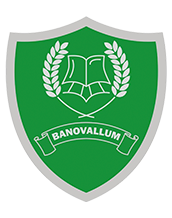Languages
We aim to develop students’ communication skills and broaden their linguistic horizons academically by inspiring, engaging and challenging students to communicate spontaneously and develop their self-efficacy in preparation for their GCSE exam as well as for future real-world situations. The uptake of modern foreign languages is falling nationally, and, in addition to our rural location, our aim is to break down barriers to language learning and develop our students’ cultural capital to step beyond familiar cultural boundaries.
We aim to ensure that the KS3 curriculum is as broad and as rich as possible, with a balance between language acquisition and cultural knowledge.
Cross-curricular links with English and literacy are strong. Both subjects have a skills-based approach and follow a similar sequential building of skills for success with a continuation of KS2 grammatical terminology. In Year 7 the study of Francophone countries links with locations in Geography and Art through other cultures. We also aim to develop enrichment opportunities with Music, using other languages (including sign language) in the formation of a choir.
We continue to develop pen pal correspondence with three French schools and hope to recommence language and cultural trips to France soon.
Implementation
The three main bodies of knowledge are phonics, vocabulary and grammatical/communicative functions. However, tightly topic-based vocabulary is not at the fore of our schemes but, rather, an overt recognition that grammar is one of the key markers of progression, as well as increasing breadth and depth of vocabulary knowledge.
In KS3 we cover a clear range of grammatical/communicative functions, which are based on the real world but also linked to the GCSE Exams.
To find out more, please view our assessment objectives and learning content here.
 Banovallum School
Banovallum School